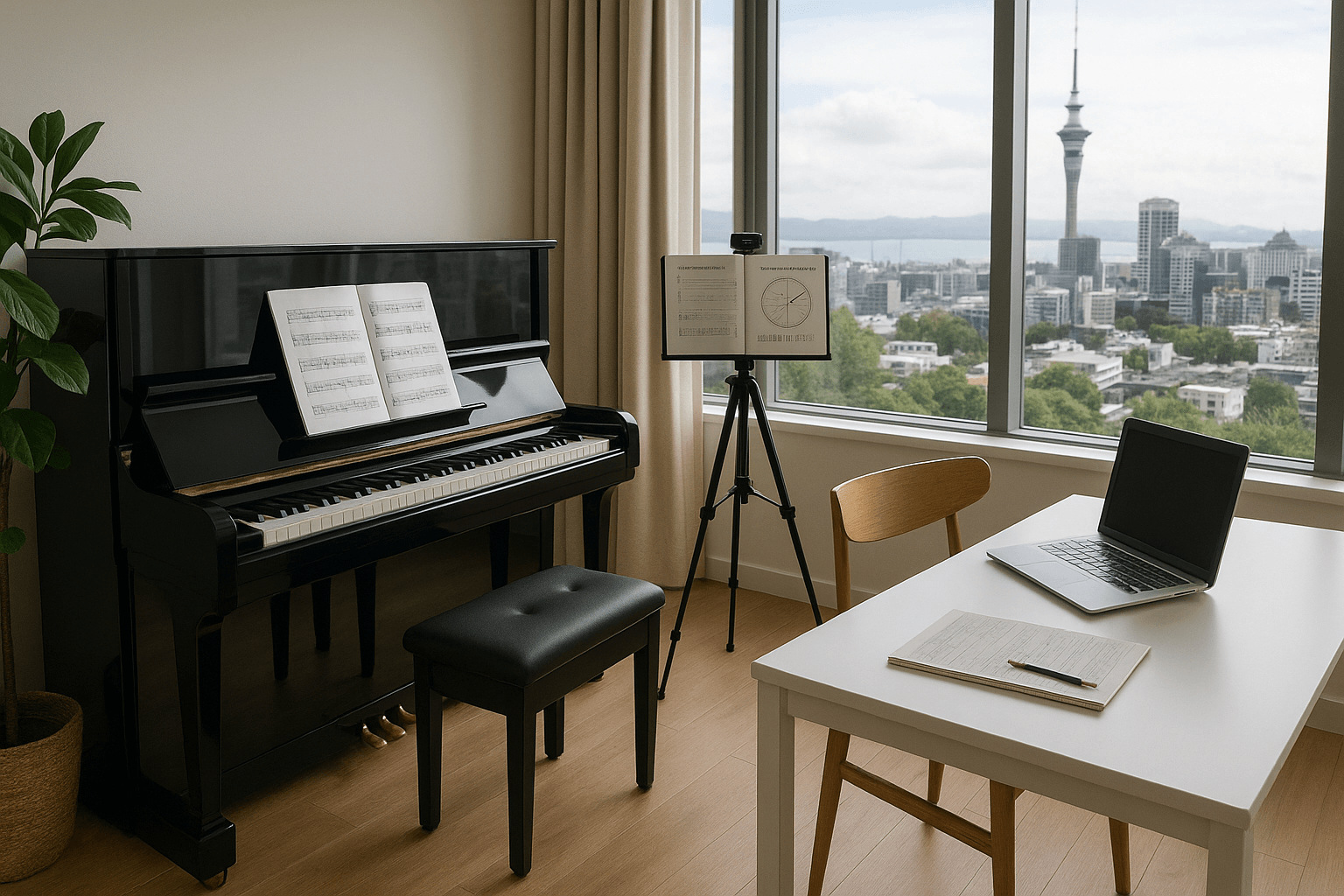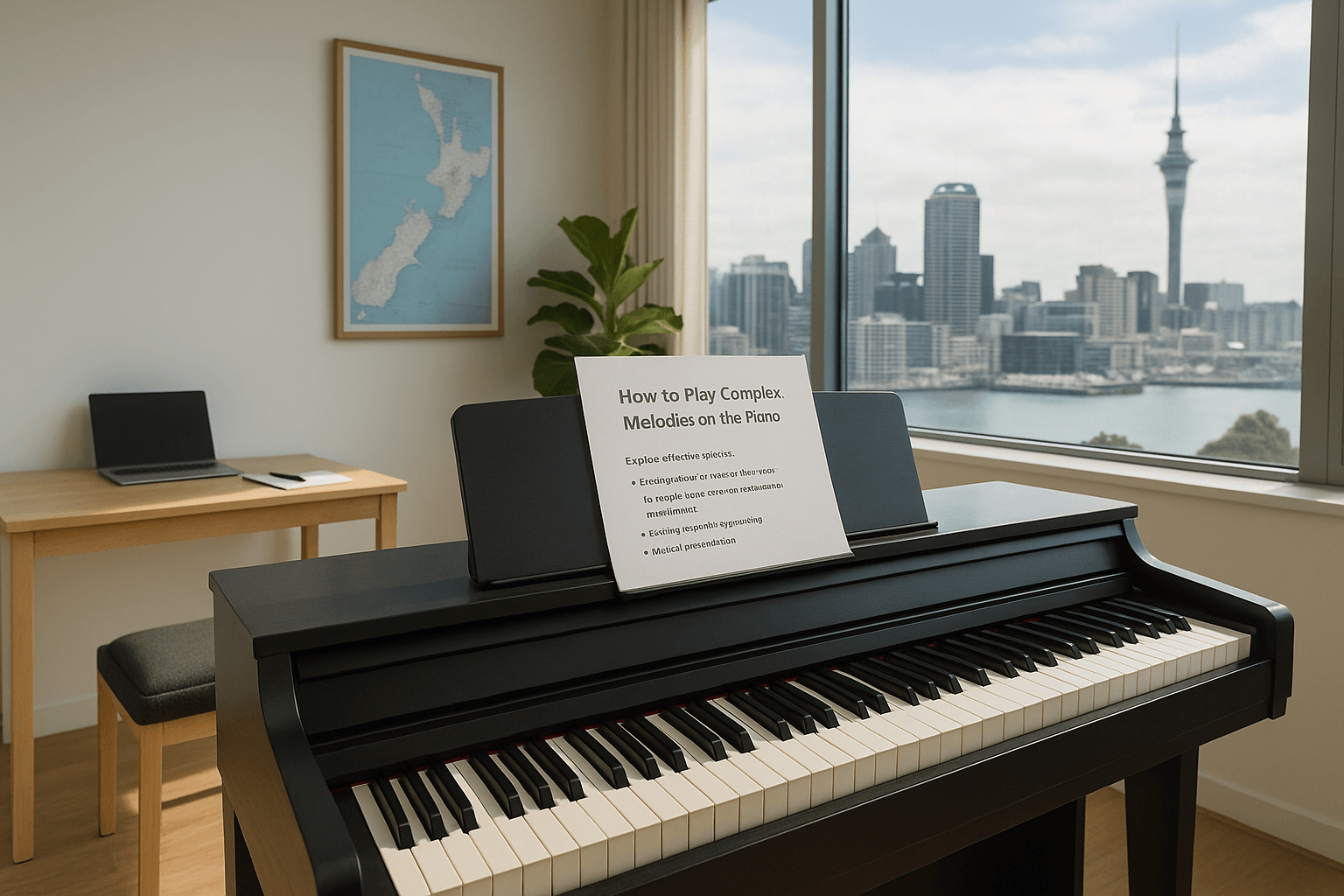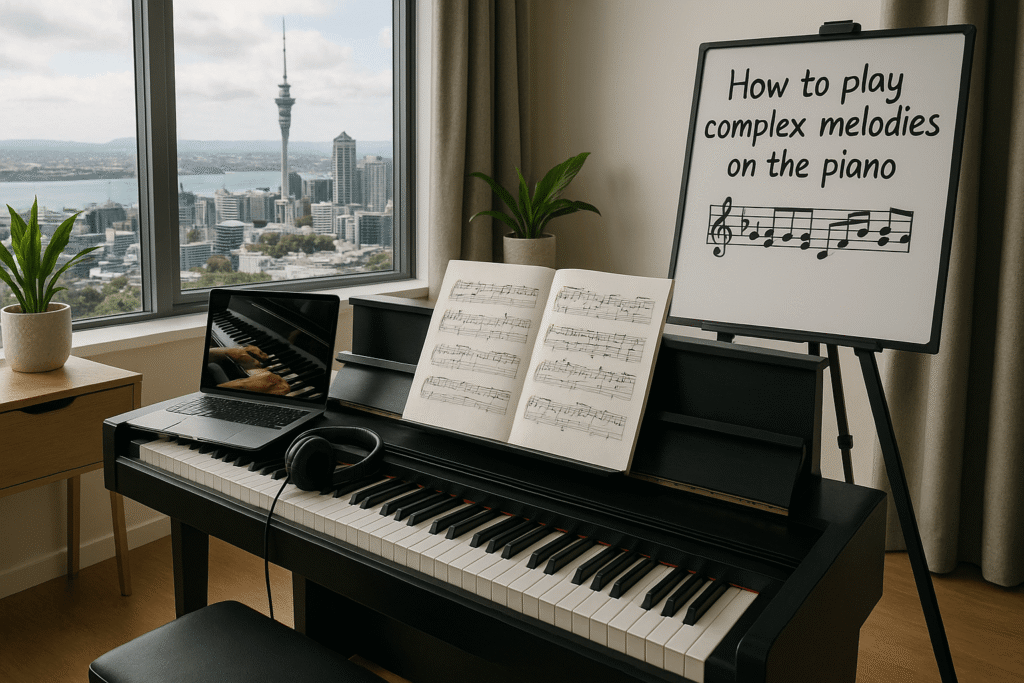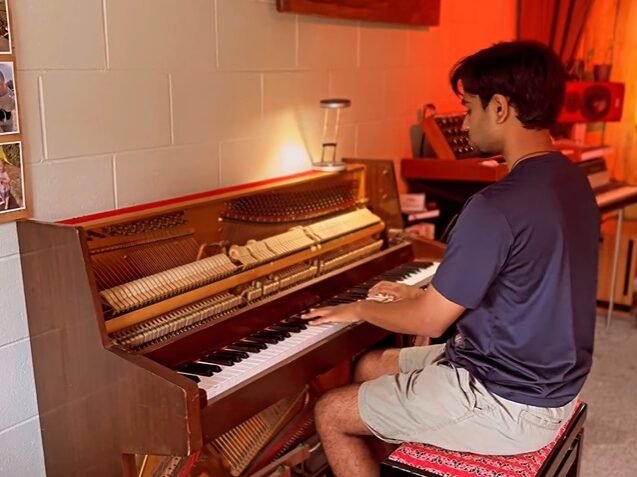Learning to play complex piano melodies involves understanding music theory, developing technical proficiency, and practising systematically. By mastering these foundational skills, aspiring pianists can tackle challenging compositions with confidence and finesse, making beautiful music on the piano a reality.
- Introduction
- Section 2: Systematic Practice Techniques
- Practical Implementation of Techniques
- Why Choose Timothy William for Complex Piano Melodies
- Frequently Asked Questions
- What are complex piano melodies?
- How can beginners approach complex piano pieces?
- Why is music theory important?
- Is a regular practice routine necessary?
- What are some common mistakes when learning difficult piano pieces?
- How long does it typically take to learn a complex melody?
- Where can I find resources to learn complex melodies?
- Do I need a teacher to learn complex piano melodies?
Playing complex piano melodies can seem daunting at first, but with the right approach, any aspiring pianist can master the art of intricate compositions. The allure of complex melodies lies in their ability to captivate both the player and the audience, offering a profound musical experience. In this guide, we will explore the essential strategies to help you learn and perform these challenging pieces effectively, enhancing your musical journey.
Understanding Music Theory
Music theory serves as the foundation for performing complex piano melodies. Grasping concepts such as scales, chords, and rhythm will allow you to interpret complicated sheet music correctly. Aspire to familiarise yourself with different musical styles and genres, as this will provide a comprehensive understanding that enriches your piano playing.
Developing Technical Proficiency
Technical skills are paramount when it comes to playing intricate melodies on the piano. Articulating rapid note sequences with precision and ease requires consistent practice and refined technique. Engaging in exercises that enhance finger strength, agility, and coordination will prepare you for tackling more demanding compositions with grace and fluidity.
With over a decade of teaching experience, Timothy William offers expert guidance in Auckland, New Zealand, helping students of all levels develop the technical and theoretical skills necessary for playing complex piano melodies seamlessly. Whether you’re a beginner or advanced player, the path to piano mastery begins here.

Section 2: Systematic Practice Techniques
Having delved into the foundational elements of mastering complex piano melodies, it is essential to develop a structured approach that maximises efficiency. The development of systematic practice techniques is crucial for any pianist aiming to tackle intricate musical pieces. This involves not only a disciplined routine but also the implementation of specific strategies that can dramatically enhance learning efficacy. In this section, we will explore essential practices that facilitate gradual progression while ensuring engagement with the music.
Establishing a Structured Routine
A structured routine is the backbone of efficient learning. Consistency is key, and setting aside dedicated practice times each day helps in building muscle memory as well as fostering familiarity with complex compositions. Most experts suggest splitting practice sessions into segments, each targeting a different aspect of proficiency, such as scales, arpeggios, and passages from the compositions being learned. By focusing on different technical elements in each segment, you can ensure a well-rounded development of skills required to play complex piano melodies.
Strategic Segmenting of Pieces
Breaking down complex compositions into more manageable sections is an effective way to conquer challenging pieces. By practicing smaller segments repeatedly, pianists can avoid feeling overwhelmed and instead focus on mastering each part before moving on. This approach also allows for a deeper understanding of the nuances in each segment, improving overall interpretation of the piece. Additionally, using techniques like slow practice, where the tempo is greatly reduced, can help solidify note accuracy and rhythmic precision.
Utilising Technology and Tools
With the advent of modern technology, pianists in Auckland and beyond can utilise various tools to enhance their practice sessions. Metronomes, for instance, are invaluable for improving timing and maintaining a steady pace, which is crucial when dealing with complex piano melodies. Additionally, recording practice sessions allow pianists to hear and critically evaluate their playing. Such self-assessment can highlight areas needing improvement, fostering a more directed practice.
The Role of Mental Preparation
Beyond physical practice, mental preparation plays a pivotal role in mastering intricate melodies. Visualisation techniques, where pianists mentally rehearse a piece, can reinforce muscle memory and enhance performance readiness. Likewise, setting clear, achievable goals for each session can significantly improve motivation and persistence. This mental fortitude aids in maintaining focus and overcoming the challenges posed by complex pieces.
By integrating these systematic practice techniques, pianists can substantially increase their proficiency and enjoyment of performing complex compositions. In the next section, we will explore practical ways to implement these techniques into your daily routine, offering real-world examples that illustrate their effectiveness.

Practical Implementation of Techniques
Building upon the foundational and strategic insights from earlier discussions, the practical implementation of these systematic practice techniques is key to unlocking mastery of complex piano melodies. This section pairs theory with tangible actions, transforming knowledge into actual skill development at the keys.
Start Slow, Perfect the Basics
Beginning your practice at a slower tempo allows the notes and their sequences to be thoroughly internalised. By focusing on accuracy rather than speed, seasoned pianists ensure each note is clean and every transition between them seamless. Utilize a metronome to maintain consistent tempo during practice, gradually increasing the speed once basic accuracy is achieved. This method eliminates hesitant playing habits, reinforcing muscle memory and precision.
Segment and Repeat
While systematic, segment-focused practice was previously introduced, the real-world application involves identifying challenging excerpts and isolating them for targeted improvement. Break down the piece into manageable sections, perhaps four to eight bars each, and repeatedly practice each section before combining them. This focused repetition solidifies the neurological patterns needed for flawless execution, blending precision with musicality.
Mental Rehearsal and Visualisation
Mental rehearsal complements physical practice by allowing the player to internalise the music away from the instrument. Close your eyes and imagine playing through sections of the melody, visualising hand movements and hearing the notes in your mind. This technique enhances cognitive understanding of the complex structures within the melody and prepares you for physical execution. Consistently practising mental runs of the composition helps consolidate memory, muscle coordination, and performance confidence.
Incorporate Expression
Complex piano melodies often require more than technical prowess; they demand emotive interpretation. As you gain proficiency in the mechanics of a piece, begin to explore its expressive potential. Dynamics, phrasing, and tempo variations all contribute to an interpretation that captivates listeners. Record your practice sessions to evaluate your expressive delivery and adjust accordingly. Understanding the emotional core of a piece not only enriches performance but also imbues practice with depth and personal connection.
By integrating these detailed techniques into regular practice, you will be better equipped to conquer complex compositions with confidence. As you continue this journey of musical growth, consider how dedicated guidance can further enhance your skills.
In the next section, we will delve into why Timothy William in Auckland, New Zealand is an ideal partner on this path, offering unparalleled expertise and a tailored teaching approach.
Why Choose Timothy William for Complex Piano Melodies
In the realm of mastering complex piano melodies, few instructors match the calibre of Timothy William. His extensive knowledge in piano technique and music theory, coupled with his tailored teaching methods, makes him an ideal choice for anyone in Auckland aspiring to elevate their piano playing to new heights. With a commitment to fostering individual growth and a deep understanding of diverse musical styles, Timothy William has established himself as a preeminent piano teacher in New Zealand.
Experienced Local Expert
Based in Auckland, Timothy William possesses a profound understanding of the local music scene and the unique demands of learning piano in this vibrant city. His years of experience in both teaching and live performance provide his students with valuable insights that extend beyond the classroom. His approach is rooted in practical application, ensuring that every lesson is relevant and directly applicable to mastering complex pieces. By incorporating local musical influences and fostering a community atmosphere, Timothy bridges the gap between theoretical knowledge and practical skills, turning aspiring pianists into confident performers.
What Sets Us Apart
What truly distinguishes Timothy William from other piano instructors is his ability to adapt his teaching strategies to suit the diverse needs of his students. He offers a personalized curriculum that focuses on each learner’s strengths and areas for improvement, ensuring a comprehensive and fulfilling educational experience. Additionally, Timothy employs a holistic teaching philosophy that combines technical proficiency with music appreciation, encouraging students to develop not only their piano skills but also a lifelong love for music. This balanced approach is integral to building the confidence needed to tackle challenging piano compositions in Auckland and beyond.
Timothy William’s students consistently praise his ability to make complex concepts accessible, his dedication to student success, and his unwavering enthusiasm for music education. These qualities are reflected in the positive testimonials of his professional Auckland piano lessons from both students and parents, underscoring the transformative impact of his teaching on entrusting learners with the tools to master intricate pieces.
In the upcoming section, “Frequently Asked Questions”, we will address common questions related to complex piano melodies, offering additional clarity and support for your learning journey.
Frequently Asked Questions
What are complex piano melodies?
Complex piano melodies are compositions that often include multiple concurrent musical lines, intricate rhythms, and advanced harmonies, challenging a pianist’s technical and interpretative skills.
How can beginners approach complex piano pieces?
Beginners should start by breaking down complex pieces into smaller sections, practising slowly, and focusing on mastering each part individually before combining them for a comprehensive playthrough.
Why is music theory important?
Music theory provides the foundational knowledge necessary to understand the structure of compositions, which is particularly useful when tackling complex melodies as it aids in identifying common patterns and harmonies.
Is a regular practice routine necessary?
Yes, a regular practice routine is essential for building muscle memory and ensuring consistent progress, especially when working with challenging material.
What are some common mistakes when learning difficult piano pieces?
Common mistakes include practising too quickly, neglecting mental practice, and overlooking the importance of dynamics and expression in musical interpretation.
How long does it typically take to learn a complex melody?
The time it takes to learn a complex melody varies greatly depending on the individual’s experience level and practice efficiency. It can take anywhere from a few weeks to several months.
Where can I find resources to learn complex melodies?
Resources include sheet music, instructional books, online tutorials, and local piano communities in Auckland that offer guidance and support.
Do I need a teacher to learn complex piano melodies?
While a teacher can offer valuable guidance and personalised instruction, there are numerous online resources and tools available for self-directed learners, although having a teacher might accelerate progress.




